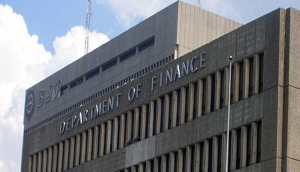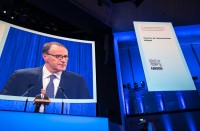
(Eagle News) — The government has lost an estimated P145 billion annually in foregone revenues because of the non-adjustment of fuel excise taxes for the past two decades, the Department of Finance revealed during a public hearing at the House Committee on appropriations.
The DOF said that this loss was equivalent to about 1 percent of the country’s Gross Domestic Product (GDP).
“The non-adjustment of fuel excise taxes for the past two decades has cost the government an estimated P145 billion annually in foregone revenues (in 2016 prices) or about 1 percent of the country’s Gross Domestic Product (GDP),” the DOF new release said.
The DOF said this P145 billion “could have otherwise been spent on education, health and other social services that benefit the poor the most.”
Finance Undersecretary Karl Kendrick Chua said at Wednesday’s public hearing of the House committee on appropriations that the government has proposed to correct this by adjusting fuel excise tax rates, along with the proposal to significantly lower personal income taxes to offset such impact of the higher taxes on petroleum products.
Chua said that contrary to the erroneous perception by certain quarters, higher oil taxes will be absorbed mainly by affluent families, and not by the poor and low-income ones.
He said the wealthy, or the country’s top 10 percent, consume 51 percent of oil products. He added that the top 1 percent use up 13 percent, or the same share as those in the bottom 50 percent of the population.
Rich consumers to be affected, not the poor, says DOF
“The extra income from higher fuel taxes, which will be collected mainly from rich consumers, will be used for targeted transfer programs and other social welfare benefits for the poor, including a modernization program for public utility drivers,” Chua said.
Adjusting fuel excise tax rates is among the provisions of House Bill 4774 or the Tax Reform for Acceleration and Inclusion Act filed by Quirino Rep. Dakila Carlo Cua, who chairs the House committee on ways and means.
HB 4774 is the DOF-endorsed version of Package One of the Duterte administration’s Comprehensive Tax Reform Program (CTRP).
A substitute bill that was approved by the Cua-chaired House ways and means panel had consolidated HB 4774 with 52 other similar bills. The substitute bill contained moderate modifications to the original measure.
Cua’s committee approved the substitute bill last week by a 17-4 vote and then referred it to the House committee on appropriations to go over the proposed earmarking of funds under this CTRP measure.
Among the modifications is the non-indexation of the fuel excise tax rates to inflation after the implementation of the three-year staggered rate increase is completed in 2020.
Chua said he hopes the provision indexing fuel excise tax rates to inflation would be retained in the final version of the bill.
He said reforming the fuel excise tax system is “highly progressive” because “we would be removing subsidies on the fuel consumption of the top 10 percent of households with monthly incomes of around P115,000 and above who consume almost 51 percent of fuel in the country.”
He said that rather than indirectly subsidizing the rich, the additional revenues to be collected from the fuel excise increase would be better spent on targeted transfer programs for about 10 million poor and vulnerable households that would be affected by the tax hike and earmarked for infrastructure projects to reduce traffic congestion and pollution and raise workers’ productivity. (based on a DOF report)







